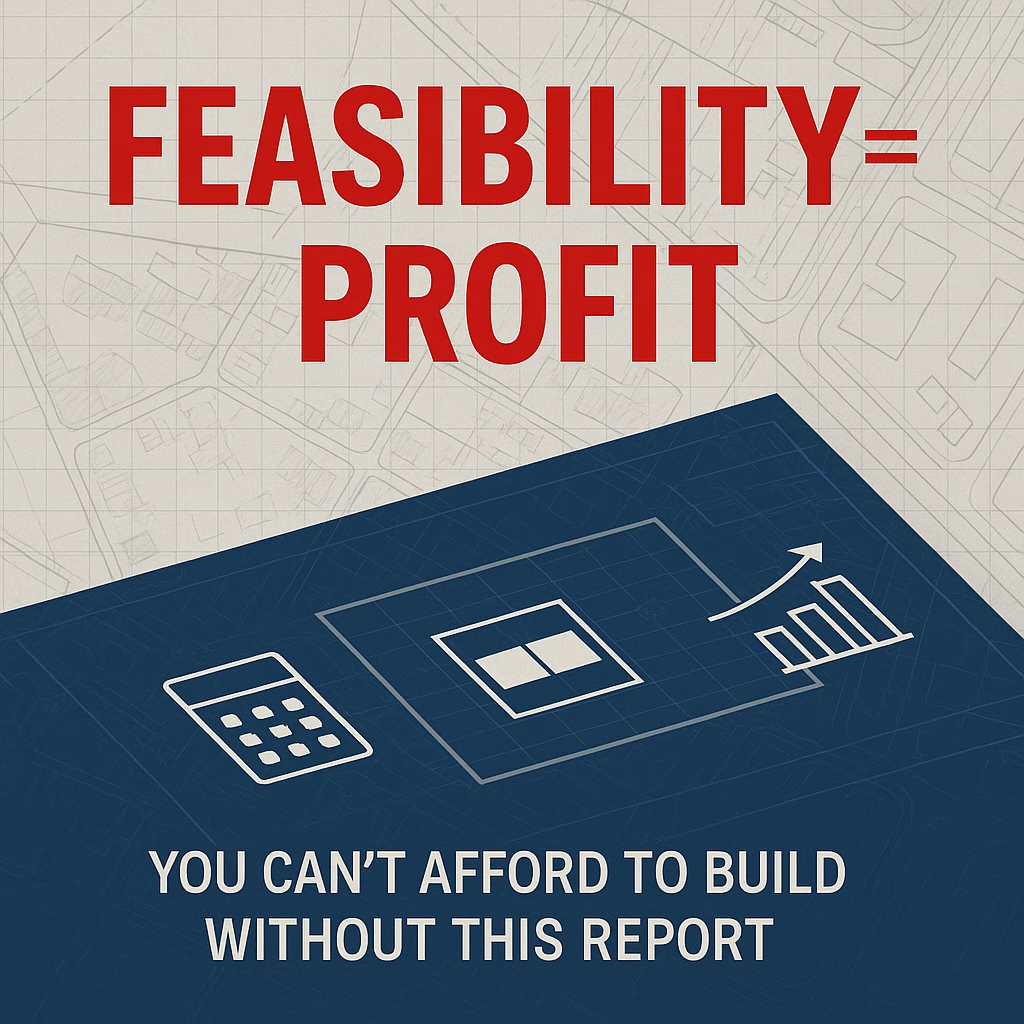Introduction: Why Feasibility Reports Are Non-Negotiable in Real Estate Development
feasibility report construction Imagine pouring millions into a real estate project, only to realize halfway that zoning laws, market demand, or financial projections don’t align. That’s where a feasibility report becomes indispensable. It’s not just a formality; it’s your project’s blueprint, risk assessor, and financial forecast rolled into one.
For real estate developers aiming for success, understanding and utilizing feasibility reports is crucial. Let’s delve into what makes these reports the cornerstone of profitable real estate ventures.

What Is a Feasibility Report in Construction?
A feasibility report in construction is a comprehensive analysis that evaluates the viability of a proposed real estate project. It encompasses various studies to determine if the project is technically feasible, economically viable, legally permissible, and operationally achievable.
Key Components:
Technical Feasibility: Assesses whether the project can be constructed with available resources and technology.
Economic Feasibility: Analyzes cost-benefit aspects to ensure profitability.
Legal Feasibility: Checks compliance with zoning laws, building codes, and other regulations.
Operational Feasibility: Evaluates if the project’s operations can be sustained post-construction.
By conducting these studies, developers can make informed decisions, secure financing, and plan effectively.
Types of Feasibility Studies in Real Estate Development
Market Feasibility Study:
Analyzes demand and supply dynamics.
Identifies target demographics and competitors.
Assesses market trends and potential absorption rates.Asana
Financial Feasibility Study:
Projects costs, revenues, and profitability.
Includes cash flow analysis and return on investment (ROI) calculations.
Evaluates funding options and financial risks.
Technical Feasibility Study:
Examines site conditions, design requirements, and construction methods.
Assesses availability of materials and labor.
Identifies potential technical challenges.
Legal Feasibility Study:
Reviews zoning laws, land use regulations, and environmental restrictions.
Ensures compliance with legal requirements.
Identifies necessary permits and approvals.
Operational Feasibility Study:
Determines the project’s operational sustainability.
Assesses management requirements and operational costs.
Evaluates long-term maintenance and support needs.
Who Conducts Feasibility Studies?
Feasibility studies are typically conducted by a team of professionals, including:
Real Estate Consultants: Provide market insights and strategic advice.
Financial Analysts: Perform economic evaluations and financial modeling.
Engineers and Architects: Assess technical aspects and design feasibility.
Legal Experts: Ensure compliance with laws and regulations.
Engaging experienced professionals ensures a thorough and unbiased feasibility analysis.
Benefits of Conducting a Feasibility Study
Risk Mitigation: Identifies potential obstacles early, allowing for proactive solutions.
Informed Decision-Making: Provides data-driven insights for strategic planning.
Financial Planning: Offers detailed financial projections and funding strategies.
Regulatory Compliance: Ensures adherence to legal and environmental standards.
Stakeholder Confidence: Builds trust among investors, lenders, and partners.
Utilizing Feasibility Study Templates
To streamline the feasibility study process, developers can use templates that provide structured formats for data collection and analysis. Templates often include sections for project overview, market analysis, financial projections, technical assessments, and legal considerations.
Recommended Templates:
Using these templates can save time and ensure comprehensive coverage of all critical aspects.
Resources
ERA Egypt Services: Explore our range of real estate development services.
ERA Egypt Projects: View our portfolio of successful projects.
Investopedia: Feasibility Study: Understand the fundamentals of feasibility studies.
HUD Exchange: Project Feasibility Analysis Template: Access a comprehensive feasibility analysis template.
Conclusion: Building Success with Feasibility Reports
A well-executed feasibility report is the foundation of any successful real estate development project. It empowers developers to make informed decisions, secure financing, and navigate potential challenges effectively. By investing time and resources into a thorough feasibility study, developers set the stage for profitable and sustainable projects.LinkedIn
Ready to take the next step? Contact ERA Egypt to learn how our expertise can guide your project from concept to completion.

